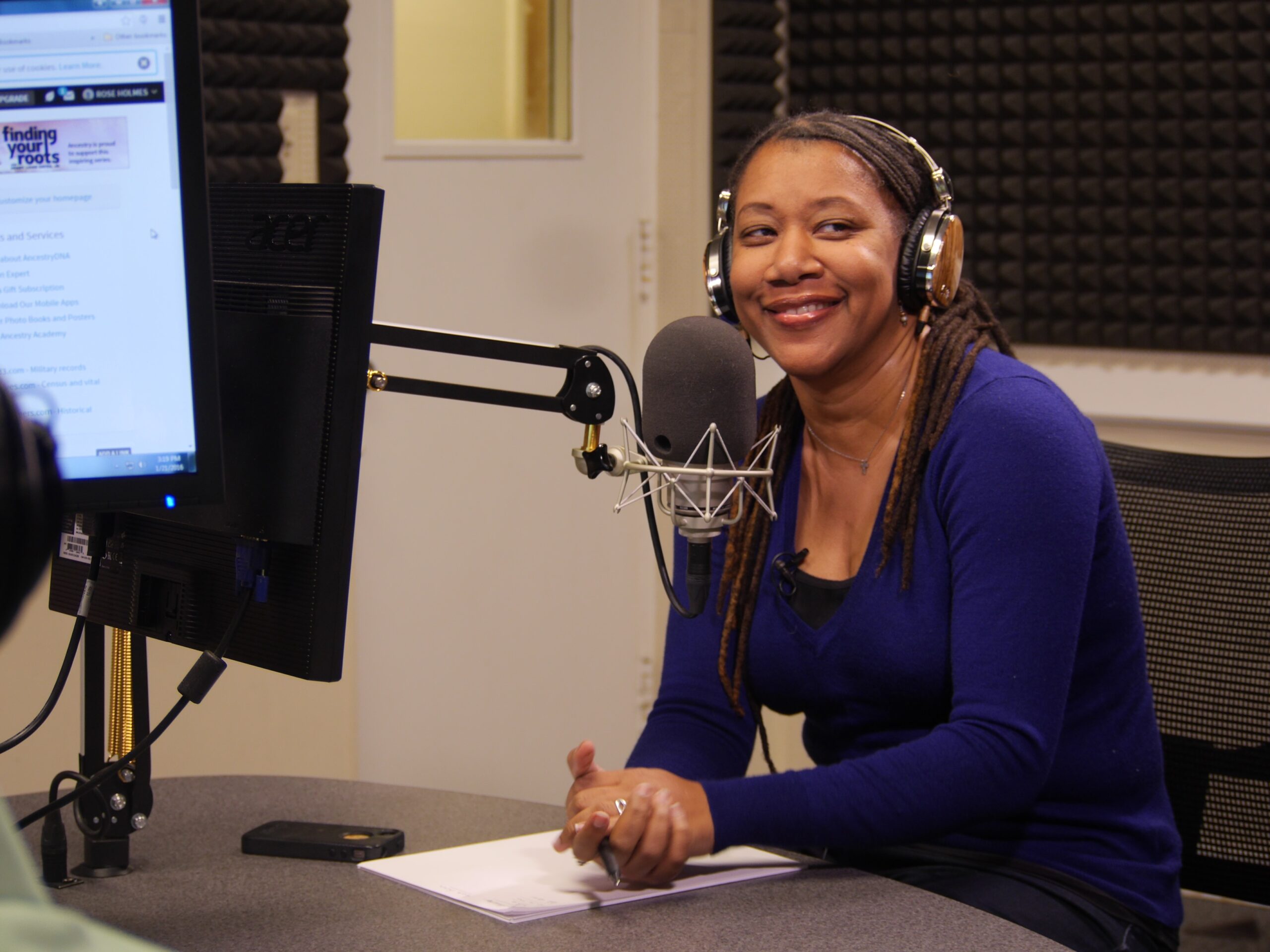‘Closer Look’ Host Rose Scott Discovers Her Family History

Alison Guillory / WABE
This is part of WABE’s ongoing series “Finding Your Roots.”
“Finding Your Roots With Henry Louis Gates Jr.” airs Wednesday at 6 p.m. on PBA30 TV with an encore Saturday at 7 p.m. Watch a preview of Season 3, and see the full schedule at www.pba.org/roots.
As I write this reflection regarding my response to DNA results, I’m reminded of the first time I saw the television mini-series, “Roots.”
The adaptation of author Alex Hailey’s award-winning book. “Roots” chronicles the life of an African young man, Kunta Kinte, captured and sold into slavery. Shackled and smothered in the bottom of a slave ship, Kunta Kinte is taken from his homeland of Gambia and shipped like any other cargo of the time to North America.
I’m reminded of the fear and anger that consumed my still young and developing mind. Yet, “Roots” also began a movement within the black community.
Early Questions
At the age of seven, I began to wonder where my roots were.
Did I come from Africa?
My mother and father couldn’t answer my ongoing inquisitive line of probing.
The set of encyclopedias located on the second floor of my St. Louis, Missouri, brick row house wasn’t any help.
I was disappointed.
The closest I came to actually gaining some insight about my ancestry was when this elderly man named Poppa Calvin came to visit from Mississippi.
He walked with a sleek, dark brown cane and his summer linen suit was crisp and neat. His hat fit perfectly like most bowler hats.
His gift to the family included a bag of pecans.
Poppa Calvin was my great-grandfather. We met when I was seven, and he in his nineties.
I remember the lines in his face made me wonder what his life must have been life, why he seldom smiled and was quiet amid all the chatter in the house.
I never saw Poppa Calvin again.
No one in my immediate family could provide much detail about “our roots” other than suggesting I go to Shaw or Natchez, Mississippi, and dig through historical records.
Honestly, I just wanted to know if somewhere on the continent of Africa I could find a connection.
The Results
Enter DNA familial testing, in my mind I’ve always been skeptical of the notion that a mouth swab could deliver a geographical location of my ancestors.
So recently when the idea of completing a test was first offered, I figured, why not?
Friends, family and colleagues wanted to know if I was excited or if I would be disappointed if my results were anything, but linked back to Africa.
Funny, with a click of the left mouse button, I felt like I learned something new about myself I’d never known.
Well, that’s because it was. A smile came across my face as I maneuvered on the Ancestry.com DNA ethnic page.
The results identified 79 percent of my DNA from Africa. Honestly, I wasn’t surprised.
The remaining breakdown was 31 percent from Cameroon/Ghana, 23 percent Ivory Coast/Ghana and 10% perrcent Nigeria. The rest was as follows: 17 percent European, 3 percent Asia and 1 percent West Asia.
One of my first thoughts was, “Was an ancestor brought to the United States through the slave trade?”
A quick online search did turn up a number of slave routes from Cameroon to Mississippi. However, there’s nothing concrete to indicate that my family has ties to the slave trade.
Still, the DNA results have prompted me to dig a little deeper and connect with as many “familial” persons indicated on my DNA timeline.
Would I have done this without the ancestry DNA mapping, probably not.
9(MDAxODM0MDY4MDEyMTY4NDA3MzI3YjkzMw004))





